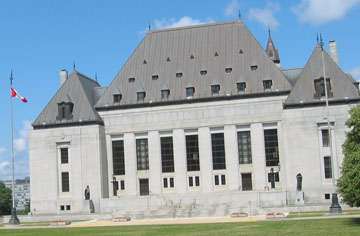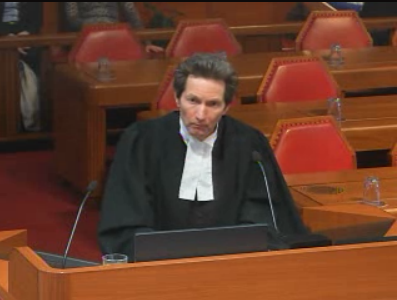Saskatchewan law firm McKercher LLP should have obtained its client’s consent before agreeing to represent an employee suing the company the firm was already working for on a variety of cases.

In
Canadian National Railway Co. v. McKercher LLP, the Supreme Court of Canada ruled that McKercher breached the bright line rule when it accepted Gordon Wallace’s retainer.
In 2008, Wallace retained McKercher to represent him as the leading plaintiff in a class action lawsuit on behalf of Prairie farmers against CN Rail, Canadian Pacific Railway, and others for allegedly overcharging them for grain transportation over 25 years.
When the class action was launched, McKercher was also acting for CN Rail in a number of other unrelated matters. CN only found out McKercher was acting against it in the class action when it was served with the statement of claim. As a result of the class action, McKercher hastily terminated all retainers with CN, except for one which CN terminated. Due to the previous relationship, CN sought to have McKercher removed from the class action.
The case went before the Saskatchewan Court of Queen’s Bench where Chief Justice M.D. Popescul
ordered McKercher be disqualified from acting on the class action. On appeal, the court
reversed the lower court’s ruling and permitted McKercher to continue to act on the class action.
“I conclude that McKercher’s termination of its existing retainers with CN breached its duty of commitment to its client’s cause, and its failure to advise CN of its intention to accept the Wallace retainer breached its duty of candour to its client. However, McKercher possessed no relevant confidential information that could be used to prejudice CN,” Chief Justice Beverley McLaughlin wrote on behalf of a unanimous court.
The bright line rule was established in the SCC’s landmark 2002 decision
R. v. Neil, which stated that “a lawyer may not represent one client whose interests are directly adverse to the immediate interests of another current client — even if the t
wo mandates are unrelated — unless both clients consent after receiving full disclosure (and preferably independent legal advice), and the lawyer reasonably believes that he or she is able to represent each client without adversely affecting the other.”
The rule “recognizes that it is difficult — often impossible — for a lawyer or law firm to neatly compartmentalize the interests of different clients when those interests are fundamentally adverse,” wrote McLaughlin.
She went even further to clarify the scope of the bright line rule.
“First, the bright line rule applies only where the
immediate interests of clients are
directly adverse in the matters on which the lawyer is acting. . . . Second, the bright line rule applies only when clients are adverse in
legal interest. . . . Third, the bright line rule cannot be successfully raised by a party who seeks to abuse it,” she wrote

.
She also wrote the rule applies in both related and unrelated client matters.
In an e-mail to
Legal Feeds, Gavin MacKenzie, a partner at Davis LPP who represented McKercher and Wallace in the case, said, “It is appropriate that the court remitted the question whether the firm should be disqualified to the Queen’s Bench in light of the court’s recasting of the legal framework, which differs from the framework that was in place in 2008 when the Wallace action was commenced.
“It is significant that one important consideration when the issue of remedy isconsidered will be the good faith of the law firm in believing that it was not reasonable for CN to expect that the firm would not act against it in an unrelated matter in light of CN’s status as a professional litigant and the importance of the western grain growers’ right to be represented by counsel of their choice.”
As interveners in the case, the Canadian Bar Association and the Federation of Law Societies of Canada presented their take on national conflict rules, but the SCC refused to “mediate the debate.”
The top court awarded costs to CN Rail and sent the case back to the Saskatchewan Court of Queen’s Bench to determine the appropriate remedy.
Update 12:43 pm: Comments added from Gavin MacKenzie

 In Canadian National Railway Co. v. McKercher LLP, the Supreme Court of Canada ruled that McKercher breached the bright line rule when it accepted Gordon Wallace’s retainer.
In Canadian National Railway Co. v. McKercher LLP, the Supreme Court of Canada ruled that McKercher breached the bright line rule when it accepted Gordon Wallace’s retainer. .
.